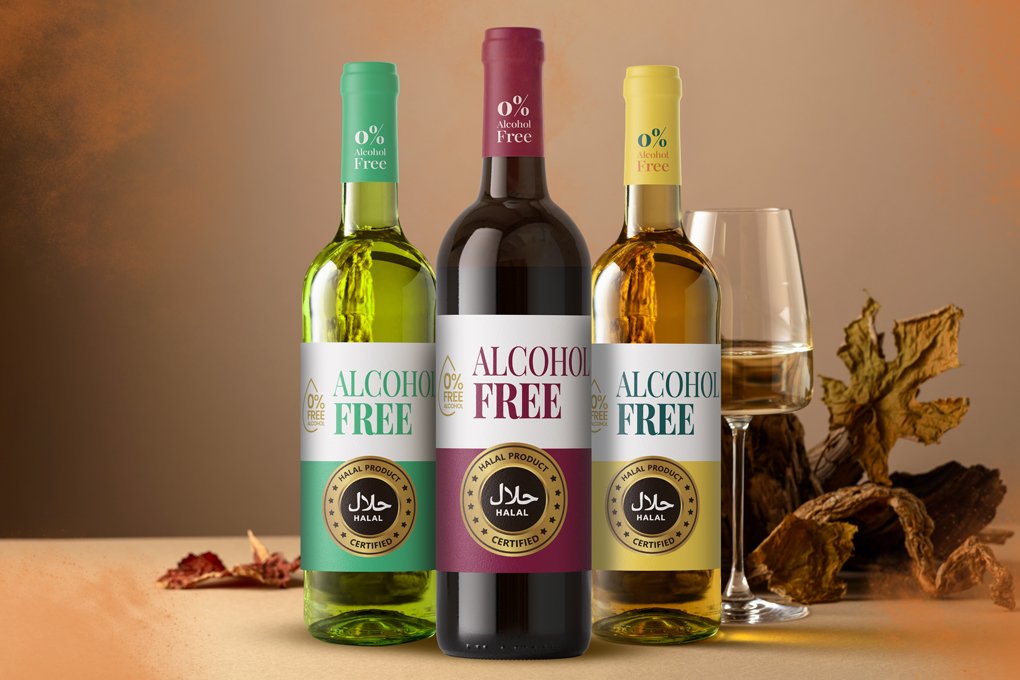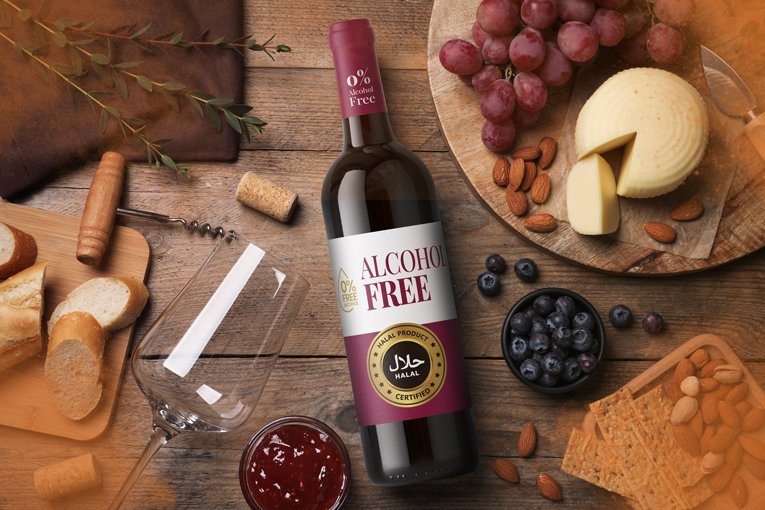Halal Wine 0% Alcohol: All You Need to Know About Non-Alcoholic Wines
The world of wine is evolving, and Halal Alcoholic-Free Wine is at the forefront of this transformation. This innovative product caters to a growing market segment seeking the sophistication of wine without alcohol content. Halal Wine offers a unique opportunity to retailers looking to expand their product range and appeal to health-conscious consumers and those adhering to religious dietary restrictions.
This article explores the concept of Halal Alcoholic-Free Wine, its production methods, and the various types available in the market. It delves into the intricate process of creating non-alcoholic wines that maintain the complex flavors and aromas associated with traditional wines. From white and red to rosé varieties, Halal Wine presents a diverse range of options to satisfy different palates while adhering to halal requirements. Understanding this product category has the potential to open new avenues for businesses in the food and beverage industry.
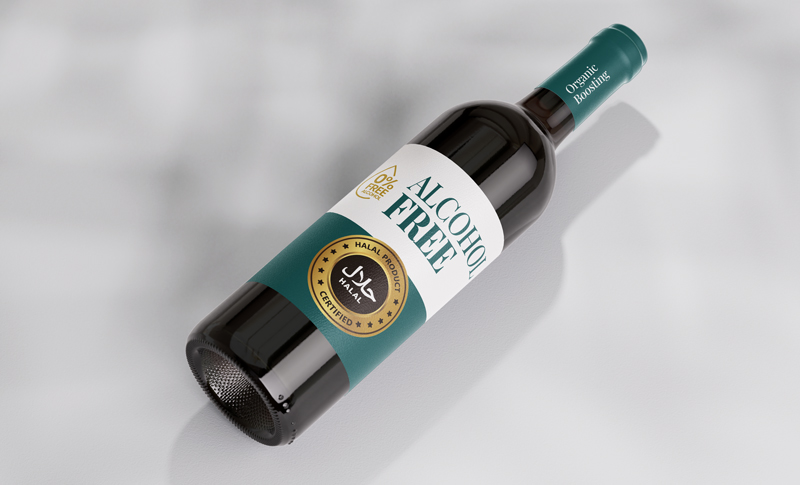
What is Halal Wine?
Halal wine, also known as non-alcoholic wine, is a beverage that respects Islamic dietary guidelines while offering a sophisticated alternative to traditional alcoholic wines. These wines are carefully crafted to contain 0.0% alcohol by volume (ABV), making them permissible for consumption according to Islamic law. Halal wine undergoes a rigorous production process that includes fermentation, aging, and filtration, resulting in a product that captures the essence of wine without the intoxicating effects.
Characteristics of halal-certified wine
Halal-certified wines possess unique characteristics that set them apart from both traditional wines and grape juice. These wines are sourced from renowned wineries in countries like Spain, France, and Italy, ensuring high-quality grapes and production methods. Unlike grape juice, which is typically made from concentrate with added sugars and preservatives, halal non-alcoholic wines maintain the complex flavors and aromas associated with traditional wines. They undergo fermentation and aging processes similar to alcoholic wines, but with an additional step to remove all traces of alcohol.
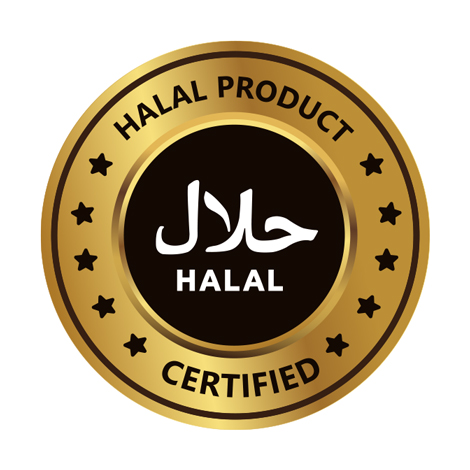
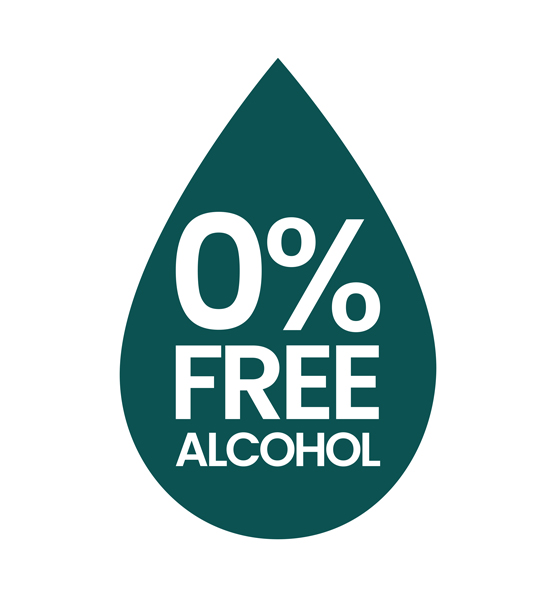
Importance of 0% alcohol content
The 0% alcohol content is crucial for halal wine to be considered permissible in Islam. This strict requirement distinguishes halal wines from other non-alcoholic wines in the market, which may contain up to 0.5% ABV. The absence of alcohol ensures that consumers cannot become intoxicated, aligning with Islamic principles that prohibit the consumption of intoxicating substances. This characteristic makes halal wine an inclusive option for various consumers, including those who abstain from alcohol for religious, health, or personal reasons.
Halal wine offers a unique opportunity for Muslims and non-Muslims alike to enjoy the sophistication of wine without compromising their values or dietary restrictions. It provides an alternative for social gatherings and celebrations, allowing individuals to participate fully without feeling excluded. The growing market for halal wine reflects a broader trend towards inclusivity and respect for diverse cultural and religious practices in the food and beverage industry.
Production Methods for Halal Wine
The creation of halal wine involves sophisticated techniques to remove alcohol while preserving the essence of traditional wine. These methods ensure that the final product meets the strict requirements of halal certification while maintaining the complex flavors and aromas associated with wine.
Cold filtration technique
Cold filtration has become a popular method for producing halal wine. This process involves removing alcohol from traditional wine without the use of heat, which is crucial for preserving flavors that can be lost at higher temperatures. Wineries typically operate in conditions below 55 degrees Fahrenheit, utilizing reverse osmosis (RO) technology to separate alcohol from the wine concentrate. The process is repeated until all alcohol is removed, after which the concentrate is reintroduced to water to create the final product. This method results in a full-flavored wine that can be halal certified.
Vacuum distillation process
Vacuum distillation has emerged as a preferred method for premium non-alcoholic wine production. This technique lowers the boiling point of alcohol by reducing atmospheric pressure, allowing for evaporation at much lower temperatures (maximum 118°F/48°C). The short residence time during which the wine is exposed to heat is crucial for maintaining quality. This gentle process preserves the wine’s sensory qualities far better than traditional methods, resulting in a product that closely mimics the original wine experience.
Quality control measures
To ensure that halal wine meets the necessary standards, rigorous quality control measures are implemented throughout the production process. These measures begin with the careful selection of grapes and continue through every stage of production. All equipment used must be thoroughly cleaned to avoid any cross-contamination with non-halal substances. Halal certification is granted by recognized Islamic authorities who inspect the entire production process to ensure compliance with Islamic dietary laws. This includes verifying that no forbidden ingredients or processes are used and that the final product contains 0.0% alcohol by volume.
Types of Halal Wines Available
The market for halal wine has expanded significantly, offering a diverse range of options to cater to different tastes and preferences. These alcohol-free alternatives provide the sophistication and complexity of traditional wines while adhering to halal requirements.
Red Wine Varieties
Halal red wines offer a rich and robust experience without the alcohol content. One popular variety is an organic merlot, boasting a deep ruby-blue color and a fruity taste of blackberry, plum, and raspberry. It often features floral notes, oak aging, and hints of leafy pyrazines and rich baking spices. For those seeking a more balanced flavor, there are options with well-balanced fruit and acidity, offering sweet and fruity tastes with earthy undertones, complemented by aromas of black licorice and cherry cordials.
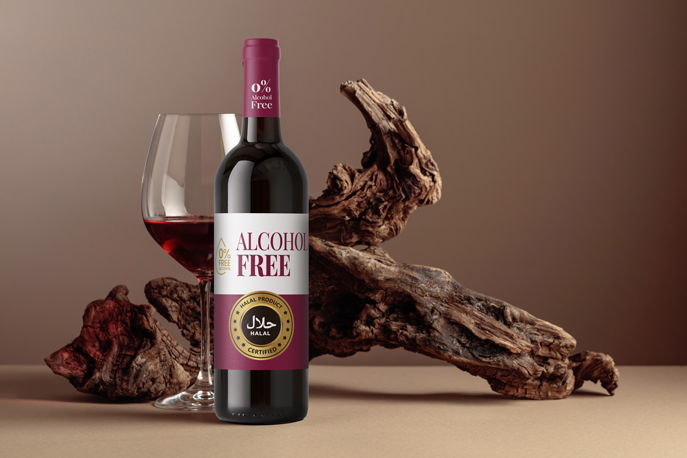
For a bolder flavor profile, another red wine variety showcases a beautiful purple-ruby color with notes of tobacco, plum, sage, and hints of spice. Its tannic grip and rustic fruit notes make it a satisfying choice for those who enjoy fuller-bodied wines.
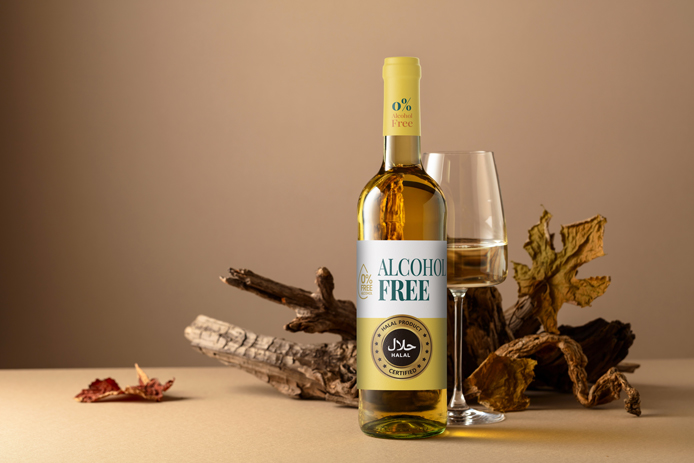
White Wine Options
Halal white wines offer a refreshing alternative to their alcoholic counterparts. A popular white wine option includes a dessert wine with notes of peach, lychee, honey, vanilla, and rose, providing a sweet and balanced experience. Another white variety features crisp acidity and fruity notes, complemented by a gentle touch of spice, with aromas of lychee, rose, pepper, and peach, creating a complex and enjoyable taste experience.
Sparkling Halal Wines
For those who enjoy the effervescence of sparkling wines, halal options are available to elevate any celebration. Sparkling rosé wines offer a fruity and floral bouquet of currants and raspberries, with fine persistent bubbles and a light refreshing taste. These wines pair well with spicy foods, seafood, fruit desserts, and soft cheeses. Another sparkling wine variety provides an elegant alternative with pear and peach notes, featuring a steady stream of medium-sized bubbles, making it perfect for toasting special occasions.
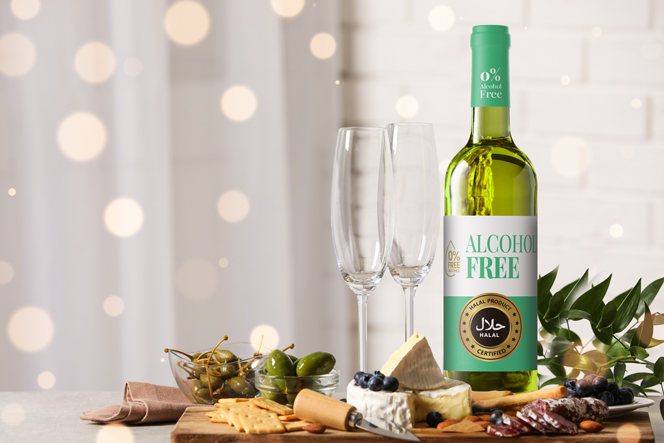
Halal wine represents a significant opportunity for businesses in the food and beverage industry. This innovative product category has the potential to revolutionize the market by catering to a growing segment of consumers seeking sophisticated, alcohol-free alternatives. By offering a diverse range of halal-certified wines, businesses can expand their product lines and appeal to health-conscious customers and those adhering to religious dietary restrictions. The production methods and quality control measures ensure that these wines maintain the complex flavors and aromas associated with traditional wines while meeting strict halal requirements.
As the demand for halal wine continues to grow, it’s crucial to stay ahead of the curve. By incorporating these products into their offerings. To help you get started, we’re thrilled to announce that a wide range of premium halal-certified 0% alcohol wines are now available in our catalog and ready to be shipped to your destination. This addition to your product line can set you apart from competitors and meet the evolving needs of your customers, ultimately leading to increased customer satisfaction and loyalty.
FAQs
- What health benefits are associated with alcohol-free wine?
Alcohol-free wine has been shown to potentially boost levels of “good” HDL cholesterol and reduce “bad” LDL cholesterol, offering some cardiovascular benefits. - Is it permissible for Muslims to drink wine with 0% alcohol content?
Non-alcoholic wine does not cause intoxication, hence it is not considered Khamr. It is permissible for Muslims to drink, provided it adheres to all other halal standards and guidelines. - Can zero alcohol wine be beneficial for liver health?
Yes, zero alcohol wine is generally safer for the liver compared to alcoholic wines, as it contains minimal or no alcohol, which is a major factor in liver damage when consumed in excess.
What are some potential drawbacks of drinking non-alcoholic wine?
Non-alcoholic wine contains histamines, which can trigger allergy symptoms in sensitive individuals. Additionally, it may contribute to acid reflux in some cases.


